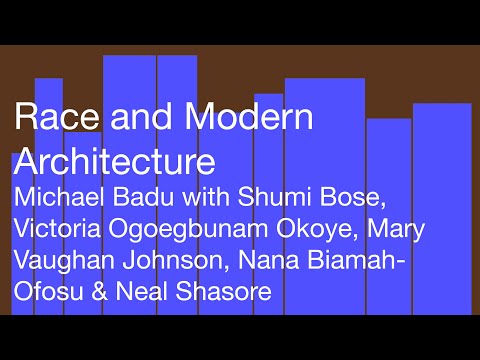
Race and Modern Architecture: A Critical History from the Enlightenment to the Present edited by Irene Cheng, Charles L. Davis II, Mabel O. Wilson (University of Pittsburgh Press)
Michael Badu chairs a conversation on themes raised by the book with Victoria Ogoegbunam Okoye, Shumi Bose, Mary Vaughan Johnson, Nana Biamah-Ofosu & Neal Shasore
Although race—a concept of human difference that establishes hierarchies of power and domination—has played a critical role in the development of modern architectural discourse and practice since the Enlightenment, its influence on the discipline remains largely underexplored. Race and Modern Architecture, an anthology of 18 essays written by architectural historians, critics and thinkers, offers a welcome and long-awaited intervention for the field by shining a spotlight on constructions of race and their impact on architecture and theory in Europe and North America and across various global contexts since the eighteenth century. The volume, edited by Irene Cheng, Charles L. Davis II, Mabel O. Wilson, challenges us to write race back into architectural history and confront how racial thinking has intimately shaped some of the key concepts of modern architecture and culture over time, including freedom, revolution, character, national and indigenous style, progress, hybridity, climate, representation, and radicalism. In this discussion chaired by Michael Badu, and joined by Victoria Ogoegbunam Okoye, Shumi Bose, Mary Vaughan Johnson, Nana Biamah-Ofosu & Neal Shasore, we invite you to reflect on how architecture intersects with histories of slavery, colonialism, and inequality, and how the publication is situated within the UK’s context.